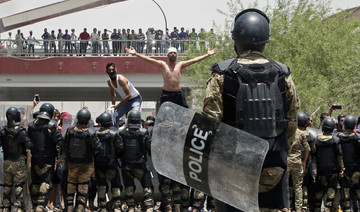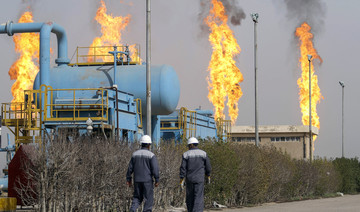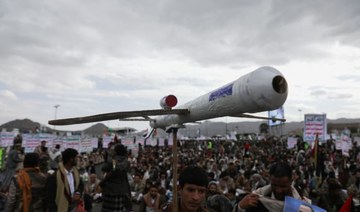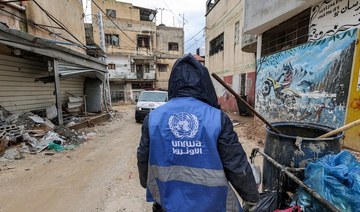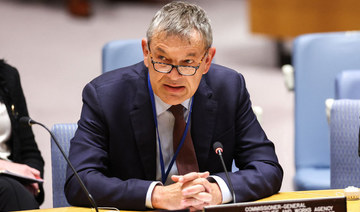BAGHDAD: Protests resumed overnight in Baghdad’s Sadr City district, with at least one member of the security forces killed, although much of the country appeared quieter than it has been for a week as politicians sought a way to end a nationwide uprising.
Iraq’s military said on Tuesday one member of an Interior Ministry force was killed and four wounded when they came under fire from unknown assailants in Sadr City, where 15 people died the previous night in riots.
More than 110 Iraqis have died and 6,000 have been wounded in the past week as protesters calling for the removal of the government and an end to corruption have clashed with the security forces, mainly in Baghdad and the south.
The violence has been the worst to hit Iraq since it put down an insurgency by the Sunni Muslim Daesh group nearly two years ago, and the biggest test for Prime Minister Adel Abdul Mahdi, in office for a year.
The spread of the violence to Sadr City this week could escalate the security challenge posed by the protests. Unrest has historically been hard to put down in the district, where around a third of Baghdad’s 8 million people live with little electricity or water and few jobs.
Protesters gathered there after nightfall, including the families of slain protesters, local police sources told Reuters.
They set fire to tires outside the municipal council building and courthouse in Mudhaffar Square, police said. Police said the gunfire that targeted the security forces was fired from a crowd of protesters.
Protesters say they have come under attack by members of the security forces using live ammunition throughout the week. Reuters journalists have witnessed protesters being killed and wounded by snipers firing from rooftops into crowds.
Protests resume in Iraq’s Sadr City as uprising enters second week
Protests resume in Iraq’s Sadr City as uprising enters second week
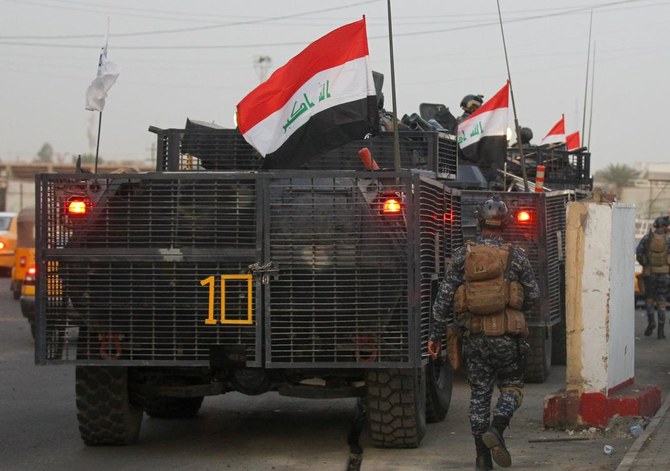
- More than 110 Iraqis have died and 6,000 have been wounded in the past week
- The spread of the violence to Sadr City this week could escalate the security challenge posed by the protests
Hezbollah drones target northern Acre in response to Israeli strikes on Lebanese group
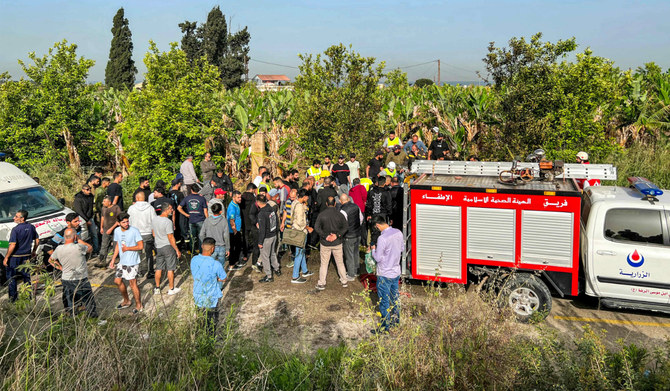
- Israeli media reported that “those present on the beach were evacuated after a Hezbollah drone was intercepted in the skies over Nahariyya and Acre”
- Israeli army had said it killed “two significant terrorists in Hezbollah’s aerial unit”
BEIRUT: Hezbollah forces in south Lebanon on Tuesday launched a combined aerial attack with diversionary and assault drones on Israeli military targets.
The focus of the Lebanese group’s attack was the headquarters of the Golani Brigade at the Shraga barracks, north of the city of Acre.
The attack was described as “a new qualitative strike against an Israeli site,” using drones said to be able to bypass Israeli radar and avoid Iron Dome missiles.
A security source told Arab News that the attack was “a sensitive targeting.” The area struck is more than 15 km from the border with Lebanon.
“This targeting took place in broad daylight while the Israelis were celebrating the Jewish Passover,” the source said.
Hezbollah said it launched the drones “in response to Israeli aggression against the Lebanese town of Aadloun and the assassination of a (Hezbollah) cadre there.”
Videos on social media showed explosions and smoke rising north of the coastal city of Acre, with beachgoers fleeing in all directions.
Israeli media reported that “those present on the beach were evacuated after a Hezbollah drone was intercepted in the skies over Nahariyya and Acre.”
A few hours after Hezbollah’s strike, Israeli warplanes carried out an airstrike on the town of Hanin, 7 km north of Bint Jbeil. It destroyed a two-story family house.
Initial reports said there were two casualties, including a woman, and five were wounded, some seriously, including women and children. The injured were transferred to hospitals.
Meanwhile, an Israeli military drone struck a car between the towns of Adloun and Al-Kharayeb, killing Hussein Ali Azqul, who reports suggested was an engineer working in Hezbollah’s air defense unit.
The group was left mourning a second member, Mohammed Khalil Attiya, from Qana, who died from injuries received a few days ago. The Israeli army described him as a “leader in the Radwan Force (a Hezbollah special unit).”
In ongoing cross-border clashes between Hezbollah and Israeli forces, the former said it had attacked “a gathering of Israeli enemy soldiers in the vicinity of Al-Asi,” to which Israeli fighter jets retaliated with airstrikes on the towns of Blida and Hula.
Israeli airstrikes continued relentlessly on Tuesday night, striking Yaroun and Al-Aishiya as well as other districts in south Lebanon.
The Israeli military also launched flash bombs over villages in the western and central areas, extending to the outskirts of Tyre, and on Tuesday morning fired heavy weapon rounds toward the towns of Naqoura and Jabal Al-Labouneh.
Houthi threats continue but attacks on ships in Red Sea appear to be on hold
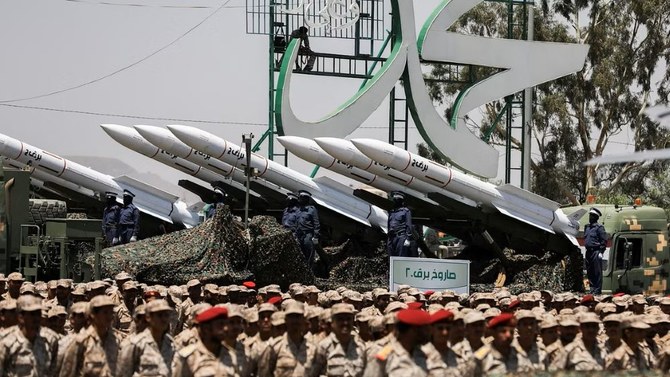
- Observers speculate the militia might be running out of drones and missiles, or air strikes by US and UK could have damaged launchers
- Houthis have claimed credit for significantly fewer assaults this month and international marine agencies have reported a decline in the number of strikes
AL-MUKALLA: Despite ongoing threats by Houthi leaders in Yemen that they will continue to attack international shipping in the Red Sea, the number of strikes on vessels has drastically fallen in recent weeks.
The group has not claimed credit for any assaults on ships since April 10. Analysts speculate that the militia might be running out of missiles and drones, or air strikes on Houthi targets by the US and UK could have damaged their launchers.
Since November, the Houthis have launched hundreds of drones, ballistic missiles and remotely controlled and explosive-laden boats at international commercial and naval ships in the Red Sea, Bab Al-Mandab Strait and the Gulf of Aden. They say they are acting in support of the Palestinian people and the aim is to force Israel to allow more humanitarian aid to enter the Gaza Strip.
Compared with the early days of their campaign, the Houthis have claimed credit for significantly fewer assaults this month, and international marine agencies have reported a decline in the number of strikes.
The organization UK Maritime Trade Operations, which records attacks on shipping, has not received any notifications of incidents in the Red Sea or Gulf of Aden since April 7, one of the longest periods with no reported attacks since the start of the Houthi campaign almost six months ago.
The US Central Command last reported intercepting Houthi missiles and drones on April 16. Prior to that it had been issuing almost daily notifications.
Despite the decline in attacks on shipping, the Houthis’ Political Office said on Monday it had instructed its military forces to escalate attacks in the Red Sea and Arabian Sea on ships linked to or bound for Israel in response to what it described as “genocide crimes” committed by Israel against Palestinians in Gaza.
Mohammed Al-Basha, an expert on the Middle East with the Navanti research group in the US, cautioned that the recent extended period without any claims of attacks does not necessarily mean the Houthis have halted their attacks in the Red Sea.
“The absence of frequent daily claims could also represent a strategic decision or the possibility of diplomatic or secret talks, rather than an operational inability,” he wrote in a message posted on social media platform X.
“This might suggest that the missile stockpile of the Houthis is diminishing, while the production of drones remains steady.”
Yemeni military analyst Brig. Gen. Mohammed Al-Kumaim suggested airstrikes in recent months by US and UK forces might have diminished the capability of the Houthis to launch attacks, and said the group might be settling into a war of attrition.
“The US may have targeted the few mobile missile launchers belonging to the Houthi militia; they need three or four launchers if they have 100 missiles,” he told Arab News.
The UN’s special envoy for Yemen, Hans Grundberg, said on Monday he held talks with Houthi negotiator Mohammed Abdul Sallam and Omani officials in Muscat to explore ways in which to advance a UN-brokered peace plan for Yemen while also reducing wider tensions in the Middle East.
Abdul Aziz Al-Bukair, a Houthi government minister of state, said the militia’s representatives discussed with Grundberg their recent negotiations with Saudi authorities, as well as issues such as payment of wages to public-sector workers, the reopening of key roads in Yemen, and oil exports.
The ongoing, UN-led peace efforts to end the near decade-long war in Yemen suffered a severe blow when the Houthis began attacking ships in the Red Sea in November.
Iran threatens to annihilate Israel should it launch a major attack
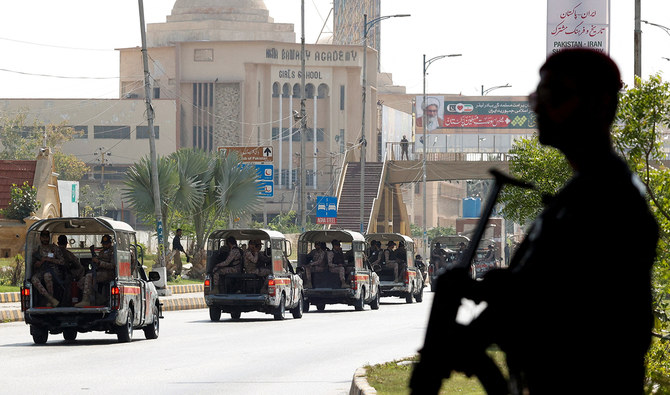
- Explosions were heard over Iran’s Isfahan city Friday in possible Israeli attack
- But Tehran played down the incident and said it had no plans for a retaliation
DUBAI: An Israeli attack on Iranian territory could radically change dynamics and result in there being nothing left of the "Zionist regime", Iran's President Ebrahim Raisi was quoted as saying on Tuesday by the official IRNA news agency.
Raisi began a three day visit to Pakistan on Monday and has vowed to boost trade between the neighbouring nations to $10 billion a year.
The two Muslim neighbours are seeking to mend ties after unprecedented tit-for-tat military strikes this year.
On Friday, explosions were heard over the Iranian city of Isfahan in what sources said was an Israeli attack, but Tehran played down the incident and said it had no plans for retaliation.
Iran launched a barrage of missiles and drones at Israel on April 13 in what it said was retaliation for Israel's suspected deadly strike on its embassy compound in Damascus on April 1, but almost all were shot down.
"The Islamic Republic of Iran will honourably continue to support the Palestinian resistance," Raisi added in the speech in Lahore.
Norway calls on donors to resume funding to Palestinian UNRWA agency
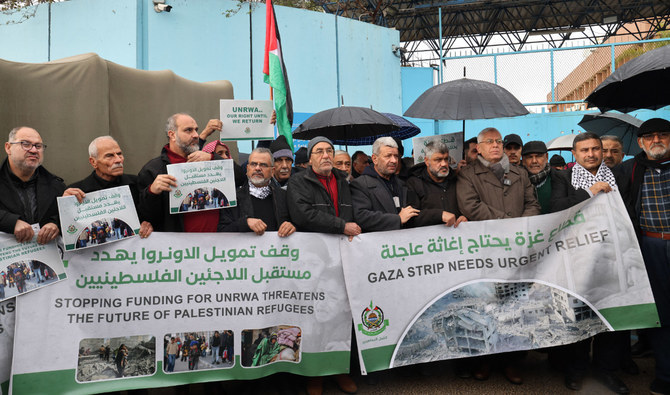
- Norway, also a major donor to the organization, argued that funding cuts put the population of Gaza at risk
- “I would now like to call on countries that have still frozen their contributions to UNRWA to resume funding,” Norway’s foreign minister Espen Barth Eide said
OSLO: Norway called on international donors on Tuesday to resume payments to the UN agency for Palestinians refugees (UNRWA) after a report found Israel had yet to provide evidence that some UNRWA staff were linked to terrorist groups.
The United States, Britain and others earlier this year paused payments to UNRWA following Israel’s claims, while Norway, also a major donor to the organization, argued that funding cuts put the population of Gaza at risk.
A review of the agency’s neutrality led by former French foreign minister Catherine Colonna on Monday concluded Israel had yet to back up its accusations that hundreds of UNRWA staff were operatives in Gaza terrorist groups.
“I would now like to call on countries that have still frozen their contributions to UNRWA to resume funding,” Norway’s foreign minister Espen Barth Eide said in a statement.
A separate investigation by internal UN investigators is looking into Israeli allegations that 12 UNRWA staff took part in the Hamas-led Oct. 7 attacks which triggered the Gaza war.
“Norway has emphasized that it is unacceptable to punish an entire organization, with 30,000 employees, and all Palestine refugees for the alleged misdeeds of a small number of the organization’s employees,” Barth Eide said.
While 10 countries have since ended their suspensions, the United States, Britain, Italy, the Netherlands, Austria and Lithuania have not. A UN spokesperson on Monday said UNRWA currently had enough funding to pay for operations until June.
Jordan thwarts attempt to smuggle 73,500 amphetamine pills at Syrian border

- Agents discovered 35,000 additional Captagon pills hidden aboard a passenger bus also arriving from Syria
AMMAN: The Jordan Customs Department said on Tuesday that it thwarted, in collaboration with security agencies and anti-narcotics forces, two recent smuggling attempts involving 73,500 Captagon pills at the Jaber border crossing.
In the first incident, JCD personnel at the border crossing intercepted an attempt to smuggle 38,500 Captagon pills, Jordan News Agency reported.
The drugs were found concealed on a passenger arriving from Syria. The suspect was subjected to an intensive search, during which the hidden narcotics were discovered.
In a second incident at the same border crossing, agents discovered 35,000 additional Captagon pills hidden aboard a passenger bus also arriving from Syria. The vehicle underwent a thorough search, leading to the seizure of the concealed drugs.
The JCD said that its agents continue to actively work across all Jordanian border customs centers, in cooperation with national security agencies, to prevent the smuggling of narcotics into the country.
The initiative is part of ongoing efforts to safeguard Jordanian citizens and the economy from the impacts of illegal drug trade, it said.
War-torn Syria has become the region’s main site for a multi-billion-dollar drug trade, with Jordan being a key transit route to Gulf states for the amphetamine known as Captagon.
Most of the world’s Captagon is made in Syria.



